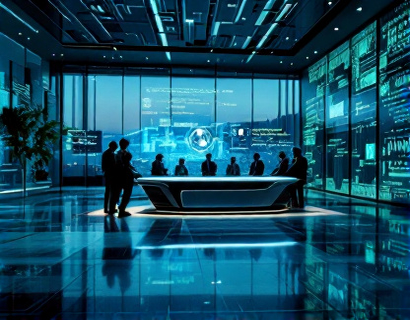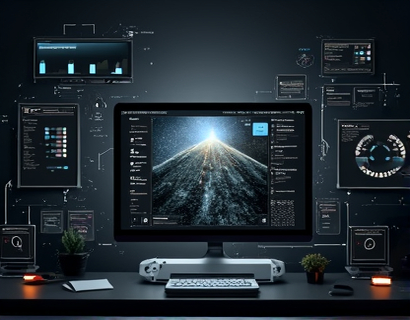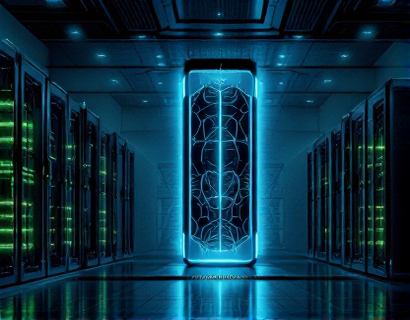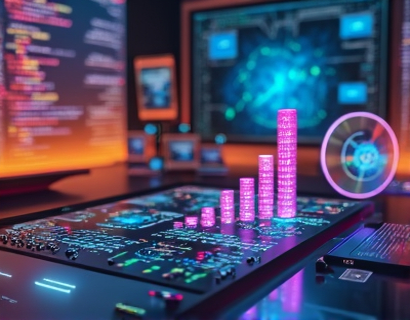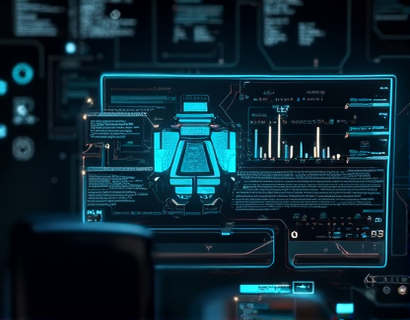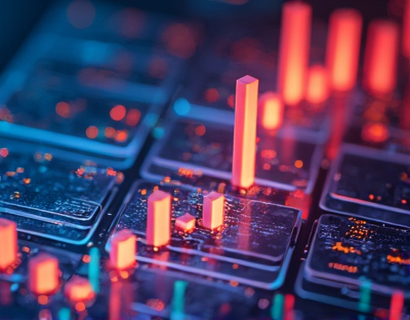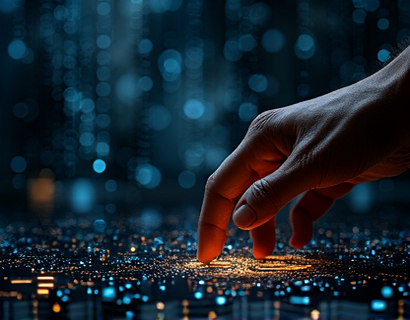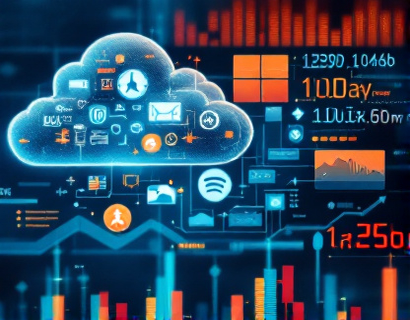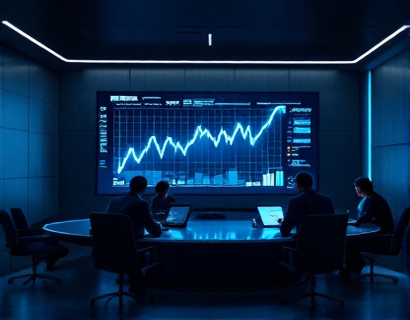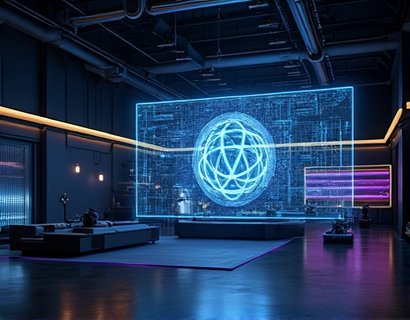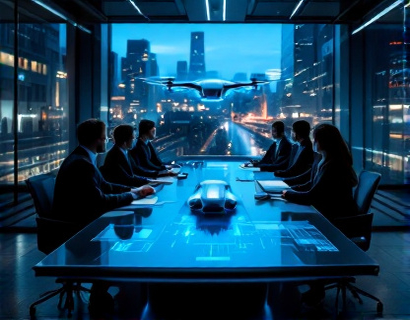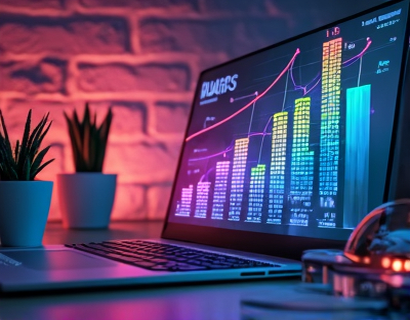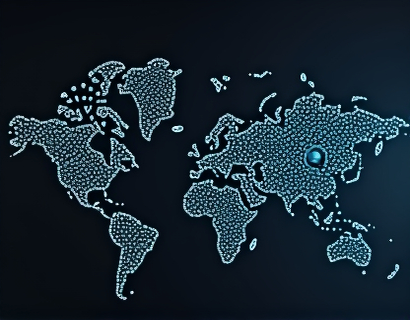Decentralized AI and Crypto: Revolutionizing Ucosystem Applications for Enhanced Digital Experiences
The intersection of decentralized technologies and artificial intelligence is giving rise to a new era of digital applications, fundamentally transforming how users interact with online services. This fusion, often referred to as the Ucosystem, combines the transparency, security, and decentralization of blockchain with the cognitive capabilities of AI, creating a powerful synergy that enhances user experiences and opens up unprecedented possibilities.
The Ucosystem represents a paradigm shift in the way we approach digital applications. Traditional centralized models, where data and control are held by a single entity, are being replaced by decentralized architectures that distribute power and data across a network of nodes. This shift not only enhances security and privacy but also fosters innovation by allowing developers to build on a more open and collaborative platform.
One of the key drivers of this transformation is the integration of AI into decentralized applications. AI, with its ability to process vast amounts of data, learn from patterns, and make intelligent decisions, is finding new avenues of application in the decentralized space. This combination is leading to the development of smarter, more responsive, and user-centric digital services.
Enhanced User Interactions Through Decentralized AI
The integration of AI in decentralized applications is revolutionizing user interactions by providing more personalized and intuitive experiences. Traditional AI models rely on centralized servers to process and analyze data, which can lead to latency issues and privacy concerns. In contrast, decentralized AI leverages blockchain technology to distribute these processes across a network, ensuring faster response times and greater data security.
For instance, decentralized recommendation systems can analyze user behavior and preferences without storing sensitive data on a central server. Instead, these systems use blockchain-based protocols to aggregate and process data in a privacy-preserving manner. This not only enhances the accuracy of recommendations but also builds trust by giving users control over their data.
Moreover, decentralized chatbots and virtual assistants powered by AI can operate independently and collaboratively across different platforms. These AI entities can learn from interactions with multiple users, improving their performance over time without the need for constant central oversight. This autonomy allows for more dynamic and context-aware interactions, making digital assistants more effective and user-friendly.
Increased Engagement and User Empowerment
The Ucosystem's approach to AI and decentralization significantly boosts user engagement by empowering users and fostering a sense of community. In centralized systems, users often feel like passive participants, with their data and interactions controlled by the platform. Decentralized applications, on the other hand, give users ownership and control over their data and digital identities.
Tokenization plays a crucial role in this empowerment. By issuing tokens that represent utility within the ecosystem, platforms can incentivize user participation and reward contributions. For example, users who provide data or engage with the application can earn tokens that can be used to access premium features or traded within the ecosystem. This creates a more engaging and motivating environment, encouraging users to actively participate and contribute to the growth of the platform.
Furthermore, decentralized governance models allow users to have a say in the development and direction of the application. Through decentralized autonomous organizations (DAOs), users can propose and vote on changes, ensuring that the application evolves in line with user needs and preferences. This democratic approach not only increases user satisfaction but also fosters a more resilient and adaptable ecosystem.
Unlocking New Potentials with AI-Driven Decentralized Services
The combination of AI and decentralization is unlocking new potentials in various domains, from finance and healthcare to gaming and beyond. In finance, decentralized AI-powered trading platforms can analyze market data in real-time, providing users with insights and automated trading strategies. These platforms operate transparently, reducing the risk of manipulation and increasing market efficiency.
In healthcare, decentralized AI applications can process medical data from multiple sources, offering personalized treatment recommendations while maintaining patient privacy. Blockchain-based health records ensure that data is secure and accessible only to authorized parties, enhancing the reliability and trustworthiness of healthcare services.
The gaming industry is also witnessing a transformation with the advent of decentralized AI-driven games. These games can adapt to player behavior, creating more immersive and challenging experiences. NFTs (non-fungible tokens) and blockchain-based economies allow players to own and trade in-game assets, adding a new layer of value and engagement.
Challenges and Considerations
Despite the numerous benefits, the integration of AI and decentralization in Ucosystem applications is not without challenges. One of the primary concerns is scalability. Decentralized systems, while secure and transparent, can face performance bottlenecks as the number of users and transactions increases. Innovations in blockchain technology, such as layer 2 solutions and sharding, are addressing these issues, but ongoing research and development are essential to ensure seamless scalability.
Another challenge is the complexity of integrating AI with decentralized architectures. Developing AI models that can operate effectively in a decentralized environment requires specialized knowledge and resources. However, the growing community of tech-savvy innovators and early adopters is driving advancements in this area, making these solutions more accessible and user-friendly.
Privacy and regulatory compliance are also critical considerations. While decentralized systems offer enhanced privacy, they must navigate a complex landscape of global regulations. Ensuring compliance while maintaining the decentralized nature of the application is a delicate balance that requires careful planning and expertise.
Future Prospects and Conclusion
The future of Ucosystem applications lies in the continued convergence of AI and decentralization. As technology advances and more developers join the ecosystem, we can expect to see even more innovative and sophisticated applications. The potential for creating truly user-centric, secure, and efficient digital services is immense, promising a future where the benefits of technology are accessible to all.
In conclusion, the fusion of decentralized AI and cryptocurrency is not just a technological trend but a fundamental shift in how we build and interact with digital applications. By embracing this revolution, we can unlock new possibilities, enhance user experiences, and create a more equitable and empowering digital world.





